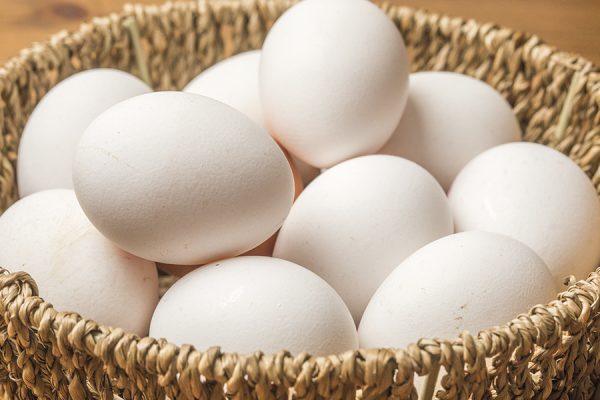Vitamin D, an essential nutrient during lockdown
Vitamin D is a very special vitamin, which was identified in the early twentieth century. Apart from its fundamental role in protecting and strengthening the bones, it has a unique aspect as a nutrient: it can be synthesized by the human body through sunlight. This facilitates its absorption in hot and sunny climates, and tends to make its lack evident wherever the climate is cold and the sun doesn’t rise. This ubiquity and apparent simple way of contributing to our general wellbeing, also complicates the fact of establishing the recommended minimum daily doses.
Right now, Humanity is crossing the equator of a new pandemic: the Coronavirus. Millions of men and women have been in lockdown for weeks, even months, sometimes in dark and poorly ventilated rooms. If you are also a vegan, you have increased difficulty of getting vitamin D through food, as most of the natural sources are of animal origin. The older you get, the more difficult it becomes for your kidneys to convert vitamin D into its active form, and oftentimes, your digestive system cannot absorb it properly, especially if you are a celiac, if you have Crohn’s disease or your viscera don’t work properly. It’s time to take action and seek reserves of this precious nutrient.
TWO KINDS OF VITAMIN D
Vitamin D (also called calciferol) belongs to the group of fat-soluble vitamins, that is, those that accumulate in cells, and therefore must be consumed with caution. It’s made up of two forms, Vitamin D2 and Vitamin D3. The former (ergocalciferol) is usually created in human tissue and is sometimes added to food.
Vitamin D3 (cholecalciferol) is synthesized in the skin and can also be incorporated into your diet by consuming animal foods. These two vitamins can be manufactured, and it appears that their healing properties for the corresponding deficiencies are the same. Both are biologically inactive until two enzymatic reactions are carried out by hydroxylation, the first in the liver and the second in the kidneys.
VITAMIN D AND ITS FABULOUS HEALING AND REJUVENATING PROPERTIES
Exposing ourselves to sunlight for a few minutes a day (10 to 15 minutes are enough; more can be dangerous) is enough to recover and even increase our deposits of this fundamental nutrient that helps put our bone system in shape, avoiding problems like osteoporosis or osteomalacia (softening of the bones, making them prone to fractures). A group of people who usually suffer from this deficiency are celiacs (gluten intolerants), whose ailments are reduced by avoiding the consumption of gluten and enhancing that of foods with a high proportion of vitamin D, even resorting (if needed) to supplementation.
Let’s not forget that lack of Vitamin D can cause the immune system (which protects us against virus and bacteria and all kinds of diseases) to weaken, causing autoimmune diseases that are difficult to deal with and long-lasting to cure. Recent studies also show that vitamin D modulates the inflammatory response and helps maintain the barrier against any disease. Hence, it is of great interest to improve the nutritional status of this vitamin in various groups of patients.
Likewise, vitamin D is going to play an important role in fertility treatments in the future, as it is closely related to the functions of the female reproductive system. Its deficiency produces lack of fertility, failure in assisted reproduction and even miscarriage, not to mention the contribution to various problems of the female reproductive system.
At least half of all women in reproductive age are believed to have an appreciable vitamin D deficiency.
VITAMIN D DEFICIENCY, A PROBLEM THAT CAN BE SERIOUS AND HAS RECEIVED LITTLE ATTENTION SO FAR
Vitamin D is obtained in three ways: exposing the skin to the sun (it must be done for a few minutes. The excess accelerates cosmetic aging and induces skin cancer), through diet or using supplements. We have already discussed the main problems caused by lack of vitamin D, but to this we have to add the fact that researchers are now studying lack of vitamin D as being linked to hypertension, cancer, diabetes and various autoimmune diseases. It is necessary to stress these issues even more, given their importance for everyone.
Within any diet, there are a number of nutrients that contain vitamin D, including fatty fish such as tuna, salmon and mackerel, different kinds of cheese, egg yolks, as well as various kinds of fungi and mushrooms. Keep in mind that this vitamin accumulates, and can cause toxicity when we abuse of supplementation. Signs of intoxication include poor appetite, fatigue, weight loss, nausea, and vomiting. Too much vitamin D can also cause disorientation and major heart rhythm problems.


DAILY DOSE OF VITAMIN D
We measure the dosage in International Units (IU). Their intervals are not too wide. Let’s say that children (from 1 year), adolescents and adults require around 600 IU daily, the same as pregnant women. The elderly, as they synthesize it poorly, need about 800 IU daily. People with high risk of vitamin D deficiency (celiac, Crohn disease, obese, etc.) may need some more. In case of doubt, always consult with your doctor; never act at your own risk and expense, given the dangers the excess of vitamin D might lead to.
